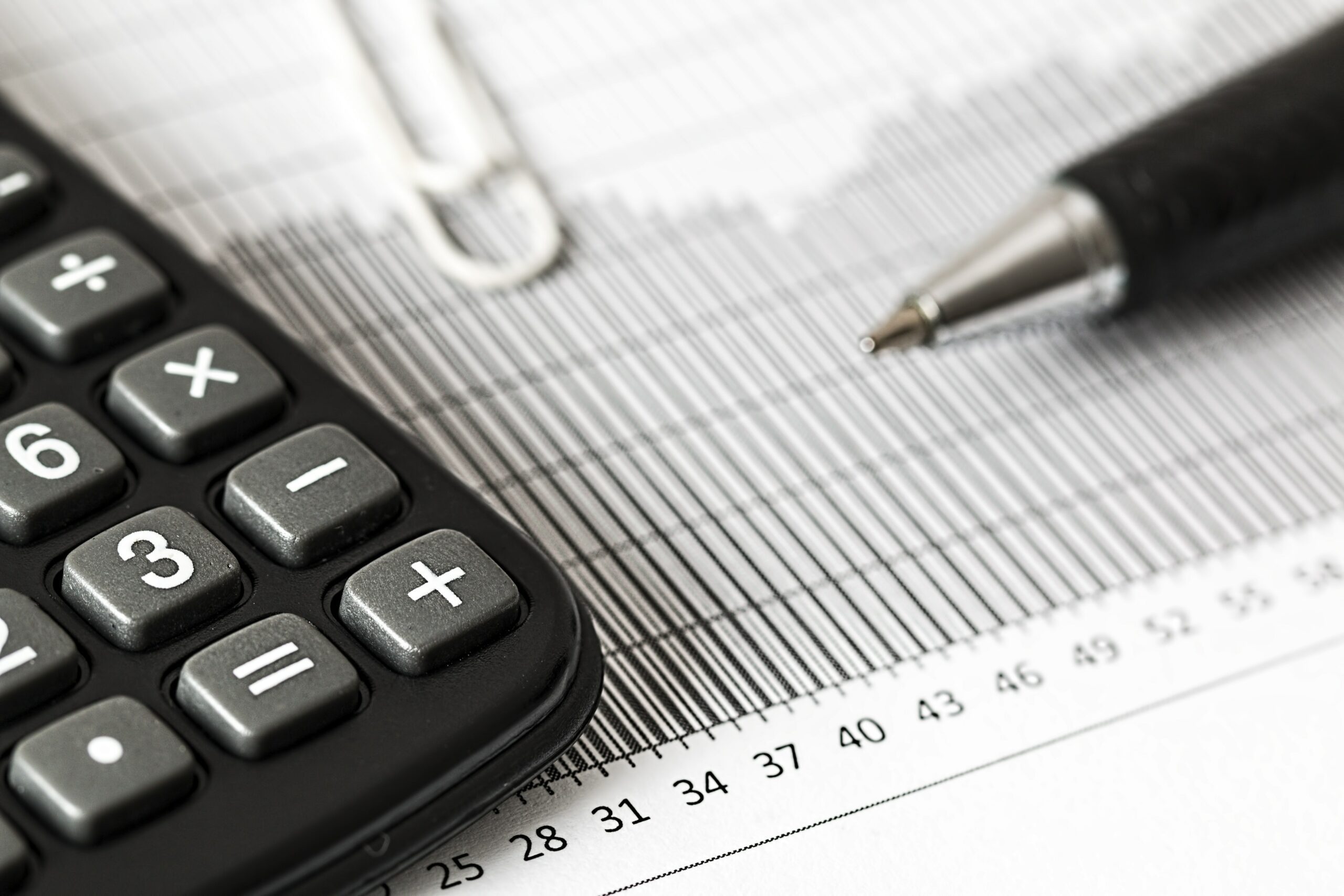
From Fees to Freedom: Richr’s Game-Changing Wealth Strategy in Real Estate, by Jason Rubin, and Glenn Orgin
Have you ever thought about why it costs 6% to…
January 9, 2024
Managing your home budget can help you build wealth faster. Read our six steps for managing finances for your home.
Table of Contents:
What Is Finance? Definition & How to Manage Finances for your Home
6 Steps to Manage Finances for Your Home
Review your home budget regularly
Frequently Asked Questions (FAQ)
What is my budget for a house?
How to create a household budget?
How to budget after buying a house?
How to set up a household budget?
How much money should I have after buying a house?
How much should you save for home maintenance?
How much should you save each year for maintenance on your home?
You do not require a higher-paying job or an inheritance from a distant relative in order to improve your personal finances. A greater understanding of money management is all that is necessary for many people in order to reduce expenses, boost their ability to invest and save, and achieve financial goals that were previously impossible.
Even if you believe that you are trapped in a terrible financial situation with no way out, there are a few things you can do to better your situation and avoid more hardship.
When we talk about personal finance, we are referring to all aspects of money management, such as saving and investing. Budgeting, banking, insurance, mortgages, investments, retirement planning, as well as tax and estate planning, are all covered under one roof.
Personal finance is focused on accomplishing personal financial goals such as having enough money to meet urgent financial needs, saving for retirement, or investing in your child’s education. It all depends on your income, spending, living needs, and personal goals and desires—as well as designing a strategy to achieve those needs while keeping within your budget constraints. To distinguish between good and bad advice and make educated decisions with your money and savings, it’s vital to become financially literate.
Unfortunately, budgeting and money management aren’t always taught in school or by your parents. You have to learn how to do it yourself to hit your financial goals and have a grasp on your personal finances. Read on for our six steps to manage finances for your household.
Creating a household budget is essential to begin to manage finances and save enough money to buy a home. These are the six necessary steps for household budgeting in order to track your spending and manage your money spending habits:
Keep in mind you’ll need to subtract your deductions. If you make $50,000 per year, that doesn’t mean your take-home pay is $4,166. Once you have your monthly income, you’re ready to move to the next step.
Highlight what an expected expense vs. variable expense is. For example, you’ll be aware of the fixed costs such as auto insurance, rent, and mobile phone bills that you have. You’ll also require a food budget, health insurance, and other resources. To assist you in developing your budgeting techniques, review your credit card and bank statements. You should also keep track of your monthly costs so that you can compare them to your income.
Identify your long-term and short-term financial objectives so that you have a figure to strive for and can establish a realistic schedule for achieving your goals. Short-term objectives are usually completed within a year, such as creating a budget for a vacation. Long-term objectives might include things like saving for retirement or learning budgeting skills in order to buy a house within the next five years.
You’ll need to devise a strategy that will provide a timeframe for your family’s financial planning. Every month, take a look at your costs and any extra revenue. You may assess your most significant costs and determine how you might reduce them in order to save even more money. Changes in mobile service providers or the cancellation of a music subscription for a few months opting to listen to ads instead may be necessary.
Make changes to your spending patterns to accommodate your household’s financial situation. This may entail eating less out and altering your lifestyle such that you eat rice and chicken more frequently rather than pricey home-cooked dishes. In order to save money on groceries using your new budgeting skills, if you are used to purchasing foods based on your cravings for the week, consider switching to checking local flyers before making meal selections to save money on groceries.
Check-in on your budget on a frequent basis to make sure everything is on track. While you may believe that you have reduced your eating out, your bank account may indicate otherwise. Making a comparison of your monthly spending to keep on track is only the beginning of effective financial management.
In order to protect your budget for your home, you’ll need to figure out exactly how much you need to save and continue earning to maintain a home budget. You’ll have to consider the following items to begin to set a budget that makes sense.
If your monthly housing expenses are less than 32 percent of your gross family income and your entire debt load (including housing costs) is less than 40 percent of your gross household income, you can start thinking about creating a household budget with the goal of buying a home.
To create a household budget, you’ll need to create a spreadsheet or write down your income, expenses, savings goals, and keep track of it on a monthly or bi-weekly basis. For further details, read our six steps to creating a household budget.
To build a home budget, you’ll need an idea of how much you’re earning vs. how much you’re spending. Once you’re able to identify that, compare it to your savings goal. Homeowner savings should be a priority if you are still renting and paying off your landlord’s mortgage.
To build a budget, follow these simple steps.
Individual household expenses are a breakdown of general living expenses. They consist of the cost of the mortgage, the cost of food used in the home, the cost of utilities, home maintenance, and other expenses. Divide the total costs by the number of family members living in the house to determine each family member’s share of the overall cost.
Several household expenses are eligible for tax deductions. You may be qualified for the home office deduction if you work from home and have an office, which can be a helpful money saving tip for the home.
After you’ve just completed the home-buying process, it may be scary to contemplate constructing a homeowner-oriented financial plan, but it’s a vital step you can’t afford to miss.
If you plan on buying a house, you need to account for all of the associated costs. Your monthly mortgage payment, as well as any increases in energy costs, HOA or condo fees, and repairs and upkeep, are all taken care of by money management strategies when creating a family budget.
This is especially true if you just made the switch from renting to buying your first home. This is a harsh reality check if you’ve never had to deal with home repairs before, like dealing with leaky toilets or broken windows on your own. You’ll also need to budget for upgrades if you want to remodel your kitchen or bathroom.
In addition to avoiding further debt, paying down any existing debt should be a top priority. In addition to allowing you to put more money into your home savings account, eliminating your vehicle, credit card, or student loan payments will provide you with greater financial flexibility. Credit card balance transfer offers or refinancing student loans may help you if you’re having problems paying off debt because of high-interest rates.
To begin household budget planning, you’ll need to create a clear list of your income and compare it to your expenses. After that step, you’ll need to review your budget regularly and make adjustments to hit your short-term homeownership goals as well as your long-term savings goals.
When it comes to buying a home, many people are only focused on getting enough for the down payment and moving in. However, life continues on, and bills keep piling up after the transaction is completed. When you get the keys to your new home, make sure you have six months’ worth of living expenses saved up for repairs, property taxes, and unanticipated expenses. It’s not uncommon for applicants to show lenders that they will be able to afford the monthly payments when the home closes.
Every homeowner has their own approach to house maintenance, but one thing is certain: taking care of your home as it matures will cost you money. You may spend a bit more out of pocket each month, but if you’re careful about staying ahead of significant expenses, you might save thousands in the long term by keeping up with the home maintenance repairs.
Annual maintenance costs can sit around one percent of a home’s current market worth, depending on how well it’s been cared for.
Save 1 to 3 percent of the purchase price each year in a separate savings account just for maintenance and repairs on your residence. At least $4,500 should be put down each year if you buy a $450,000 house. Make a single large payment or a series of smaller payments over a longer period of time.
Every dollar counts when you budget for a home and manage family finances. That’s why Richr empowers homebuyers to take control of their experience and earn 2% of the purchase price back into their home maintenance fund. Don’t stress about paying for your mortgage or fixing the leaky roof when you use smarter home buying solutions, like Richr.

If you want the Richr team to help you save thousands on your home just book a call.
 Book a call
Book a call